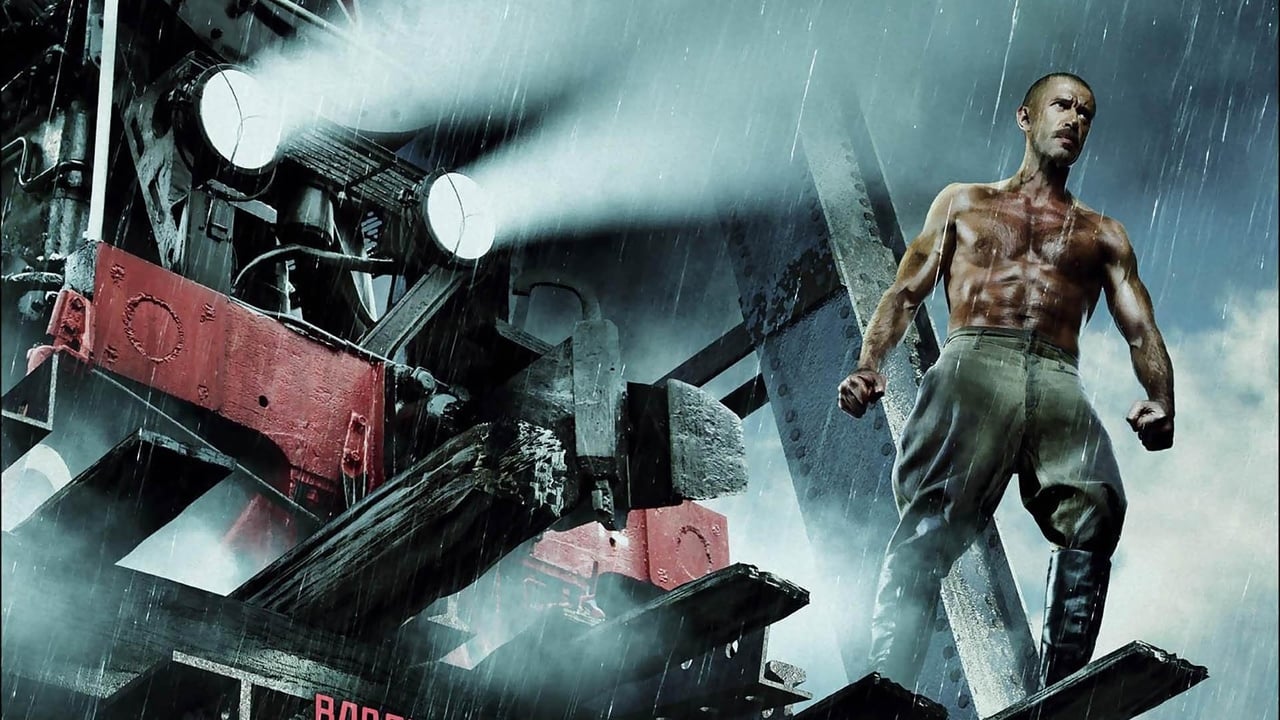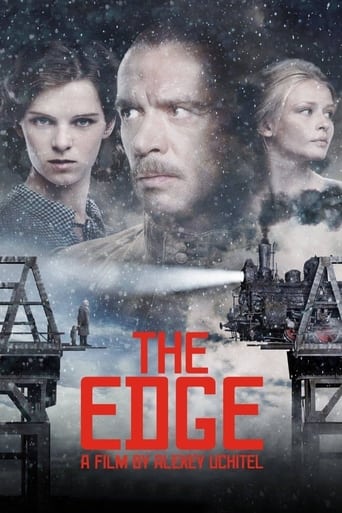Huievest
Instead, you get a movie that's enjoyable enough, but leaves you feeling like it could have been much, much more.
Brennan Camacho
Mostly, the movie is committed to the value of a good time.
Deanna
There are moments in this movie where the great movie it could've been peek out... They're fleeting, here, but they're worth savoring, and they happen often enough to make it worth your while.
Claudio Carvalho
In 1945, in the end of the World War II, the Russian war hero Ignat (Vladimir Mashkov) is sent to a Siberian labor camp of collaborationist to work as mechanic of the locomotive that transports wood. Ignat has a concussion that makes him lose consciousness and loves locomotives, but is not allowed to be a driver. Ignat meets the Russian Sofia (Yuliya Peresild) that has a German boy named Pashka and he has a love affair with her. When Ignat learns that there is an abandoned locomotive in the woods, he decides to repair the vehicle. But he finds the aggressive German girl Elsa (Anjorka Strechel) living aboard of the train that tries to protect her abode. But Elsa ends teaming up with Ignat and helping him to fix the locomotive and repair of the bridge to cross the river. When Ignat returns to the labor camp, he has a love affair with the outcast Elsa and Sofia is jealous of her. They both are outcast and Ignat and his locomotive "Gustav" are rejected by the dwellers and lives with Elsa in the train. But when the cruel Major Fishman (Sergey Garmash) arrives in the camp, their lives will not be the same again."Kray" is a movie with a different story about the lives of persons considered collaborationist by Stalin living in a Siberian labor camp. The relationship among the dwellers is weird since most of the men are alcoholics and the women are promiscuous. It is impressive and also comprehensible the hatred of the inhabitants of the camp and the German Elsa. Movies of the World War II are usually about the Holocaust or the bravery of Americans in the war and it is great the chance to see the fate of these people in the post-war. My vote is seven.Title (Brazil): "Expresso Da Morte" ("Express Train of the Death")
Mr_E_Shoppa
I guess this film can be seen as a railroad or train film as some of the reviewers of limited cognitive skills have already observed. And the film's not for anyone who dislikes foreign language films (unless you speak Russian). I love Russian films and this one did not disappoint one bit. But I almost passed on watching it due to some grossly shortsighted reviews left by a larger number of critics than I would have expected.This unpretentious film is skilfully woven with fascinating period detail from post WW2 1940s Russian life. The well researched film demonstrates understanding and depth in its commentary on Politics and life under Stalin as well as everyday peasant life, the food, clothing, the unique colloquialisms (hopefully genuine) - all were a delight to take in, and I think most who give The Edge a chance will be pleasantly surprised.Don't look for a complex or sophisticated plot in this film, although the human qualities demonstrated are as visceral and carnal as the large brown bear which appears several times. But the storyline easily hangs together and works quite well as the period vehicle for what it was intended.Certainly anyone with an interest in trains and locomotives, engineering or physics will enjoy this film, but I feel sorry for the critic who is unable to appreciate the many other delights which the talented director Aleksey Uchitel has given us.
plamya-1
This film clearly aims to present the immediate post-WWII Russian/Soviet landscape in a way that is not breathtakingly new, but satisfyingly authentic for middlebrow audiences, East and West. In this way, it reminds most of the Finno-Russian production, "The Cuckoo." The heroes are not larger than life, no better than they need to be (when the Russian heroine is asked why she prefers the newly arrived hero to her former lover, she answers, "because he has more of the devil in him"); the national prejudices create tension, project an atmosphere of cruelty, even brutality among characters who clearly have a stake in reaching mutual understanding. The cold is palpable, as is the primitive living conditions. No wonder the power and beauty of the locomotives provide romanticism and sense of adventure for all.A large part of the suspense comes from just trying to figure out the back story and the relationships among the characters. The political atmosphere is understated enough, I think, so thoughtful audiences have something to "read between the lines," and those who want an adrenaline rush will not be disappointed.
Andres Salama
Just after World War II, Ignat, a Soviet war hero, arrives at a Gulag camp in a remote section of Siberia, in order to try to handle a steam locomotive that is there. Soon he takes as his lover one of the prisoners, the pretty Sofia. Eventually, Ignat is told another locomotive is in an uninhabited forbidden island in a lake near the camp. When he goes to recover the locomotive, he finds a wild girl is living there, a German named Elsa who has been hiding there since the war started and the Russians killed her family (she is played by the pretty German actress Anjorka Strechel; unfortunately, it's hard to see her beauty in the movie since most of the time she is covered in dirt and dressed with shabby clothes). Ignat brings Elsa back to the camp in the broken locomotive, and soon sparks will fly between Elsa and Sofia for the love of Ignat. Since I love trains and snowy forests, I should have like this more, but it is hurt by very arbitrary plot points and a weak script. The train motif here seems a bit thrown in (why is there a train in the camp, anyway). I don't know if the portrayal of the Gulag camp is realistic, but in the movie it doesn't look as such a terrible place (when, in fact, hundreds of thousands of people if not millions die in the Gulag camps for otherwise treatable illnesses, malnutrition, exposure to the elements, etc.). Lots of Russian machismo in the movie as well, with the male characters hitting each other hard at the faintest of motives. The movie most memorable scene, that finally makes it worth watching, is a nude cat fight between Elsa and Sofia, with all the other naked woman in the camp watching.

